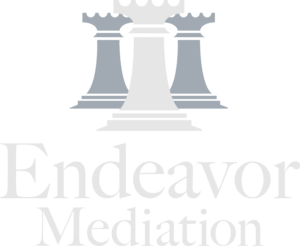Why Mediation is always the BEST Choice
Alternative dispute resolution, otherwise known as Mediation and Arbitration, are processes in which trained professionals assist parties to reach an agreement to resolve their dispute. Mediation is now required in many Florida civil cases before ever reaching a trial phase. Arbitration has grown in popularity in Florida recently as a method to resolve cases short of trial.
While trials are certainly the cornerstone of the American legal system, they can be unpredictable and costly. For those reasons, mediation and arbitration have been preferred by litigants as a way to reduce risk and achieve a strategic legal resolution.
There are additional reasons to consider mediation and arbitration as a viable option for your dispute:
- Control: when you mediate a case, you are in control. Not the judge or the jury- just You. You can decide if you want accept the offer or counter or reject. You determine where the case goes next.
- Success: Mediation works. That is proven by the thousands of cases that are settled every year in our state with mediation. It is effective because it gives the parties a chance to explain their side and encourage the other parties to look at it from their perspective.
- Bargain: Compared to the cost of a full trial or multi year litigation, a mediation held over a few hours is a cost effective solution to resolving the dispute. Once the case is off to the trial court, the expenses stack up quickly – and that is before the jury even returns the verdict.
- Respect: When the case is sent to mediation, each party is given equal weight and respect. Mediation is not adversarial, and instead encourages a calm and balanced approach to reviewing the dispute. As if seen with a fresh new perspective.
- Confidential: What is said for the purposes of reaching a settlement is confidential. That means you can explore different strategies when trying to settle the case in mediation, and it stays private.
- Strategic: Mediation is a strategic resolution to your legal dispute. Once you reach a settlement, you have a final end to the conflict that you can accept and live with.

Frequently Asked Questions
What is Mediation?
Mediation, also known as Alternative Dispute Resolution (ADR), is an informal and voluntary process where a neutral third party, usually called a “mediator,” works to help the parties communicate with each other and when possible, come to an agreement to resolve the conflict. The mediator is “neutral,” meaning that they do not advocate for either side. During a mediation, you can expect to hear facts and opinions that may be different to yours. But ultimately, it is the parties that have the power to make decisions during a mediation, not anyone else.
What is the mediator’s role?
During a mediation, the mediator works to help each party identify issues and common ground. They help the parties to communicate with each other, despite having a conflict or different opinions. The mediator helps to keep the process balanced and to encourage self-determination.
What do you need to do prior to mediation?
For a mediation to be successful, it is important to be prepared for the mediation session by having access to information related to the case (or conflict) to help facilitate settlement. It is helpful to remember to be “open minded” during mediation and be willing to listen to the other side. It can be difficult to hear or see something you do not agree with, but understanding the other side’s position can help facilitate settlement.
How does a mediation work?
During a mediation, the mediator will open the session with a short introduction about the process, their background and maybe some suggestions for the session. Each party will then be given an opportunity to explain their side of the case. It is important to be respectful and listen to the other side until they are done, so that everyone gets a chance to explain their side. Each party then stays in their room and the mediator jumps between the rooms helping to facilitate discussion. In a successful mediation, the mediator can help the parties come to an agreement and resolve the conflict.
What doesn’t happen during mediation?
The mediator is not a judge or a jury. They cannot make decisions on behalf of the parties. They are also not advocates for any party, so they cannot advise the parties in any way.
What happens if we do not settle at mediation?
The parties are not required to enter into an agreement or settle at mediation. If resolution is not reached, the parties return to where they were before mediation and continue with the matter.



